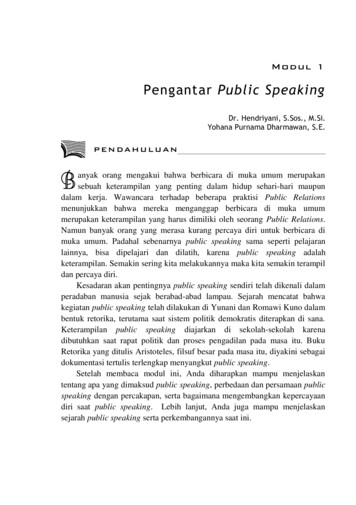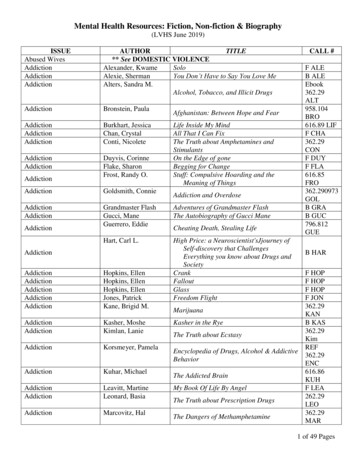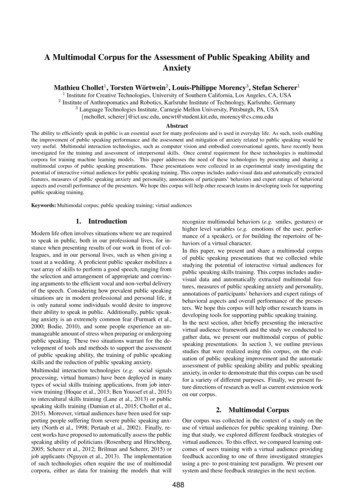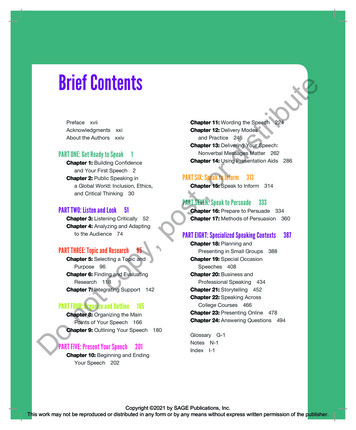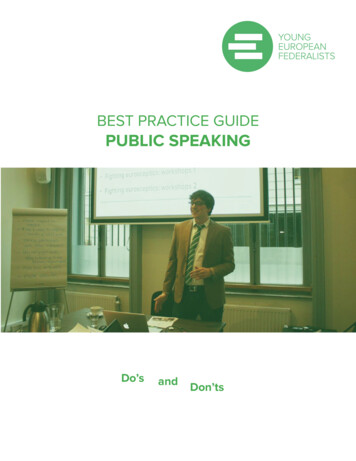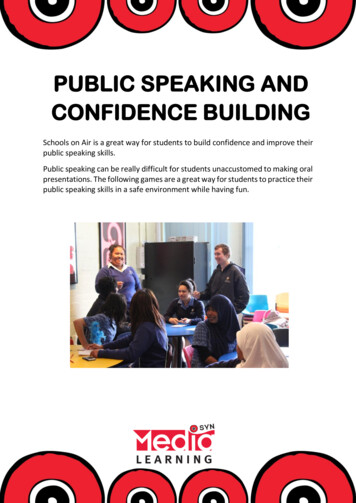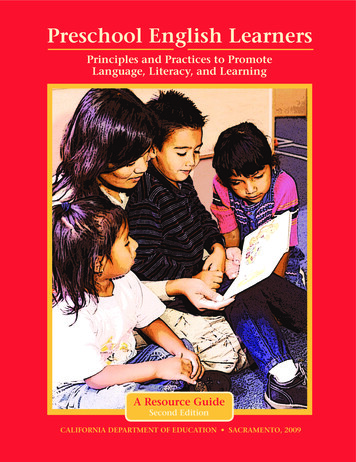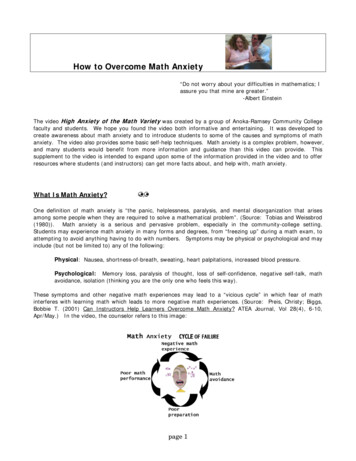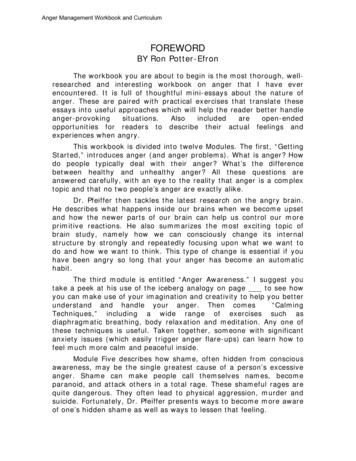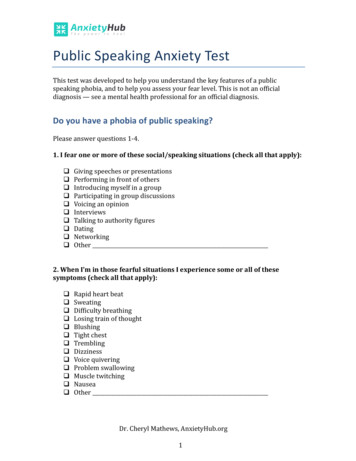
Transcription
Public Speaking Anxiety TestThis test was developed to help you understand the key features of a publicspeaking phobia, and to help you assess your fear level. This is not an officialdiagnosis — see a mental health professional for an official diagnosis.Do you have a phobia of public speaking?Please answer questions 1-4.1. I fear one or more of these social/speaking situations (check all that apply):qqqqqqqqqqGiving speeches or presentationsPerforming in front of othersIntroducing myself in a groupParticipating in group discussionsVoicing an opinionInterviewsTalking to authority figuresDatingNetworkingOther2. When I’m in those fearful situations I experience some or all of thesesymptoms (check all that apply):qqqqqqqqqqqqqRapid heart beatSweatingDifficulty breathingLosing train of thoughtBlushingTight chestTremblingDizzinessVoice quiveringProblem swallowingMuscle twitchingNauseaOtherDr. Cheryl Mathews, AnxietyHub.org1
3. When this happens I feel (check all that apply):qqqqqqqOut of controlConfusedDistressedEmbarrassedInsecure and lacking confidenceLike something is wrong with meOther4. This has a negative impact on my life in these areas (check all that apply):q School and graduationq Career advancementq Relationshipsq OtherResultsIf you checked at least one item in question 1, 2, 3, and 4, you probably have aphobia or public speaking. A phobia means that your fear is getting in the way ofyour goals. For example, you may be unable to graduate from school or interview fora job. The more your fear prevents you from achieving your goals, and the more itlimits your life, the more severe your phobia.Dr. Cheryl Mathews, AnxietyHub.org2
How severe is your phobia?5. To what extent has your fear of public speaking prevented you fromaccomplishing your career goals?For example, your nervousness may prevent you from graduating from school,interviewing, pursuing a career you love, performing satisfactorily in your job,networking, getting a promotion, or other goals. Check the box that most applies toyou.q Significantly (my nervousness is significantly preventing me from achievingmy goals)q Somewhat (my nervousness is somewhat preventing me from achieving mygoals)q Not significantly (I may be nervous in some situations but my nervousness isnot preventing me from achieving my goals)If you selected “significantly” or “somewhat,” can you identify one career goal thatyour nervousness has prevented you from achieving? Write your answer in the textbox.6. To what extent has your fear of public speaking prevented you fromaccomplishing your personal goals?For example, your nervousness may prevent you from having the types of relationshipsyou want, socializing, or other goals. Check the box that most applies to you.q Significantly (my nervousness is significantly preventing me from achievingmy goals)q Somewhat (my nervousness is somewhat preventing me from achieving mygoals)q Not significantly (I may be nervous in some situations but my nervousness isnot preventing me from achieving my goals)If you selected “significantly” or “somewhat,” can you identify one personal goal thatyour nervousness has prevented you from achieving? Write your answer in the textbox.Dr. Cheryl Mathews, AnxietyHub.org3
7. If you had no fear, what would you be able to do that you can’t do now? Writeyour answer in the text box.8. My fear level in these situationsEvaluate your degree of fear in each of the following situations:} Low means your nervous symptoms are manageable and you can performadequately.} Medium means your nervous symptoms somewhat affect your ability toperform. For example, you may have difficulty concentrating and you mayforget one of your key points.} High means your nervous symptoms significantly affect your ability toperform or make it impossible to perform. For example, hyperventilating.LowAsk a question at a town hall meetingParticipate in a performance evaluation with your bossGive a speech at a conferenceIntroduce myself to a new business colleagueParticipate in a large group discussion with strangersConduct a networking conversationGive a short report to a work teamIntroduce a speaker to a large audienceStrike up a conversation with a stranger at a social eventPresent report findings to the Chief ExecutiveIntroduce yourself in a large meetingOffer a toast at a wedding or a eulogy at a funeralTell a joke in front of a large social gatheringExpress an opinion at a team meetingParticipate in a job interviewGive a workshop in your area of expertiseDr. Cheryl Mathews, AnxietyHub.org4MediumHigh
ResultsHigh Fear: If your fear rating is high in any of these situations, you probably have aphobia of public speaking that is severely limiting your life and preventing you fromachieving your goals. You are a good candidate for SpeakMeister – a programdeveloped for public speaking phobia.Medium Fear: If your fear rating is medium in any of these situations, you probablyhave a phobia of public speaking that may be limiting your life and getting in theway of achieving your goals. You are a good candidate for SpeakMeister – a programdeveloped for public speaking phobia.Low Fear: If your fear rating is between 0-35, you are a good candidate forToastmasters.org or non-phobic groups at SpeakMeister.Public speaking phobias are treatable, and there are thousands of people who haveovercome it with the right treatment. Cognitive-behavioral treatments have beenfound to be most effective.Public speaking phobia is a type of social anxiety, so you may want to join a socialanxiety or public speaking phobia treatment group. See our list of treatment centersor virtual counselors that specialize in social anxiety and/or public speaking phobia.Dr. Cheryl Mathews, AnxietyHub.org5
Public speaking phobias are treatable, and there are thousands of people who have overcome it with the right treatment. Cognitive-behavioral treatments have been found to be most effective. Public speaking phobia is a type of social anxiety, so you may want to join a social anxiety or

